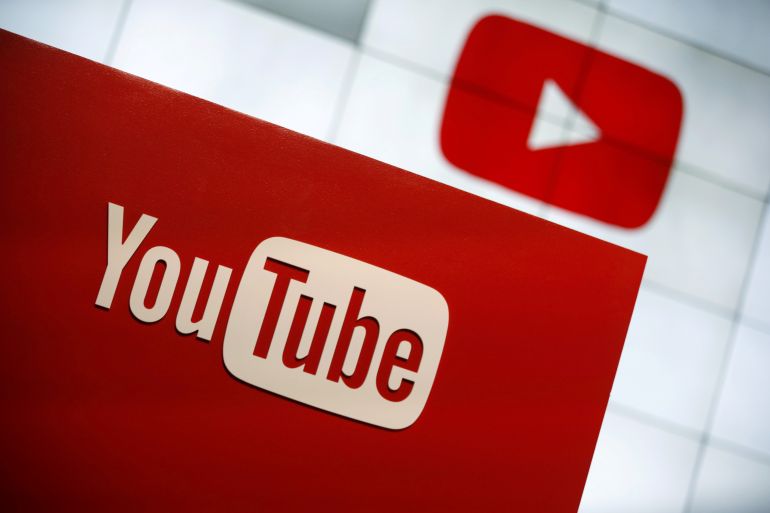Moscow wants Google to stop spreading ‘threats’ against Russians
Russia state regulator says YouTube activities are ‘terrorist in nature’ and threaten life and health of Russian citizens.

Russia has demanded that Alphabet Inc’s Google stop spreading what Moscow labelled as threats against Russian citizens on YouTube amid the war in Ukraine.
Roskomnadzor, the regulator in Russia, said adverts on YouTube were calling for Russia’s communications systems and Belarus’s railway networks to be suspended and that their dissemination was evidence of the United States tech giant’s anti-Russian position.
Keep reading
list of 3 itemsCensorship, arrests, shutdowns: Putin crushes Russian media
How is the media viewing Russia’s war in Ukraine?
It did not say which accounts were publishing the adverts.
“The YouTube administration’s activities are terrorist in nature and threaten the life and health of Russian citizens,” Roskomnadzor said, quoted by Interfax news agency.
“Roskomnadzor categorically opposes such advertising campaigns and demands that Google stop broadcasting anti-Russia videos as soon as possible.”
Google representatives in Russia have not commented.
This is the latest salvo in a dispute between Moscow and foreign tech firms over Ukraine.
YouTube, which has blocked Russian state-funded media globally, is under heavy pressure from Russia’s communications regulator and politicians.
Outraged that Meta Platforms was allowing social media users in Ukraine to post messages such as “Death to the Russian invaders”, Moscow blocked Instagram this week, having already stopped Facebook access for what it said were restrictions on Russian media.
‘One-way game’
Former Russian President Dmitry Medvedev criticised foreign social media firms on Friday for wishing death on Russian soldiers, while hinting that access to firms like Meta and Instagram may be restored.
“The ‘guardians’ of free speech have in all seriousness allowed users of their social media to wish death upon the Russian military,” Medvedev, who served as president from 2008 to 2012 and is now deputy secretary of Russia’s Security Council, wrote on his Telegram channel.
Medvedev said Russia has the necessary tools and experience to develop its own social media, saying the “one-way game” of Western firms controlling information flows could not continue.
“In order to return, they will have to prove their independence and good attitude to Russia and its citizens,” he wrote. “However, it is not a fact that they will be able to dip their toes in the same water twice.”